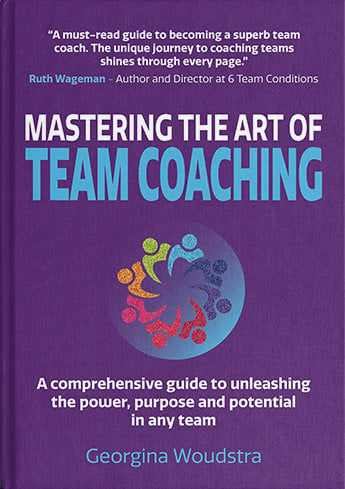Active Listening is the ability to listen deeply to team members, the team and the voice of the system in the context of the team’s desired change. It plays a crucial role in Team coaching and is the 5th competency in the TCS Team Coaching Wheel.

The ability to perceive the voice of the team or of the wider system is precisely what many coaches struggle with as they transition from their 1-on-1 work into the field of team coaching. And if left unchecked, it will lead you down a path of several simultaneous individual coaching conversations with different team members. When that happens, you’re almost guaranteed to get overwhelmed by the many different and possibly competing perspectives, especially if you add in stakeholder data. So with this word of caution in mind, let’s explore this competency in a little more depth.
While engaged in active listening, be sure to attend to the team and the team’s agenda rather than your own prescribed agenda for the team. Once this is mutually agreed, actively listen by summarising, paraphrasing, re-iterating and mirroring what the team has said in order to increase clarity and understanding. For example, you may observe the team’s conversation going around in circles. There are many ways of intervening but one we like is to use the situation to raise the team’s awareness in the here and now of this pattern of circular conversations and invite them to discuss and agree what decision making process they want to use now and in the future should this dynamic resurface. In this way the team builds and owns a useful bit of process which increases their effectiveness. You can then invite the team to experiment with their new process and fine tune it until it works well for them.
More generally, as the team verbalises its issues, needs, wants and desires, your role is to encourage, accept, explore and reinforce those feelings and thoughts. Listening without an agenda, you’re able to distinguish between the words, tone of voice and body language of the team. These are all clues that point to the essence of the team’s communication.
To be truly effective, you’ll need to listen at the logical and emotional level as well as the organic and systems levels. You recognise both your own and the team members’ ability to perceive intuitively and energetically when a team member speaks of something powerful, when growth is occurring for the team or when the team or individual team member is finding a powerful sense of self. Also listen for the team’s potential for future development. Any limiting beliefs and patterns are ‘heard’ in the same way as the team’s ‘greatness’ or potential.
In summary, your role in active listening is to hear the team’s perceptions, concerns, beliefs and suggestions without criticism or trying to ‘fix’ any perceived problem. After all, we hold the team to be creative, resourceful and whole. As you explore the team’s concerns, you seek to build on any ideas and suggestions that emerge. In turn, this enables the team to clear the space or vent their feelings without judgment or attachment in order to feel accepted, move on and be more present.
If you want to read more about the 12 Team Coaching core competencies then download our whitepaper here >>>>>>>




